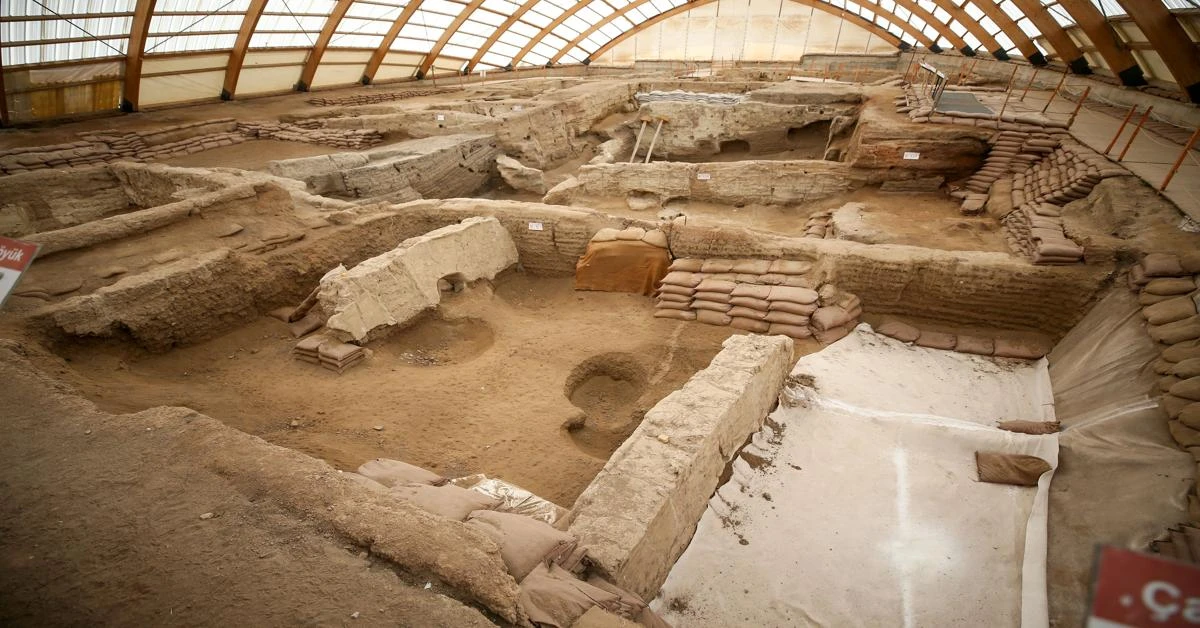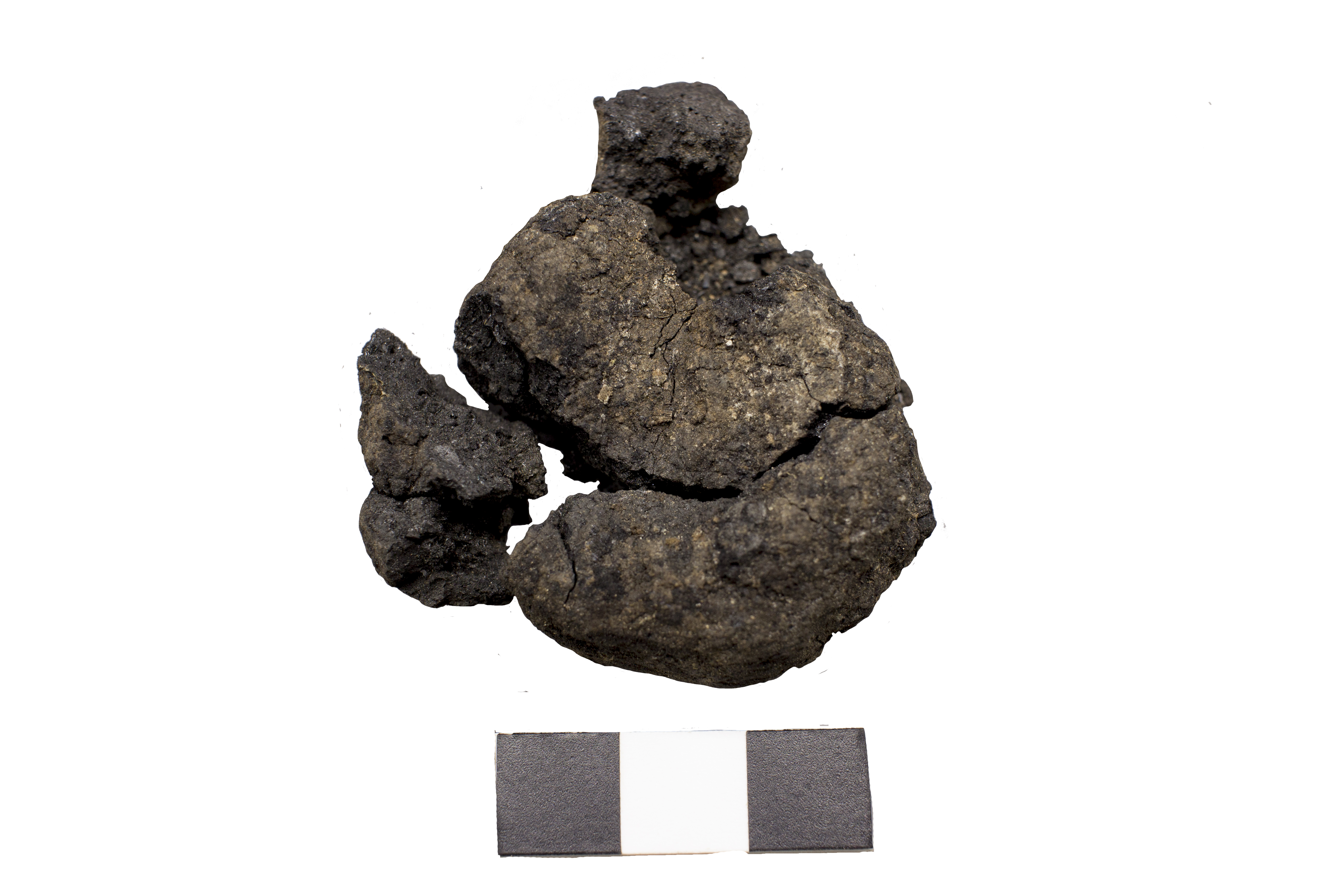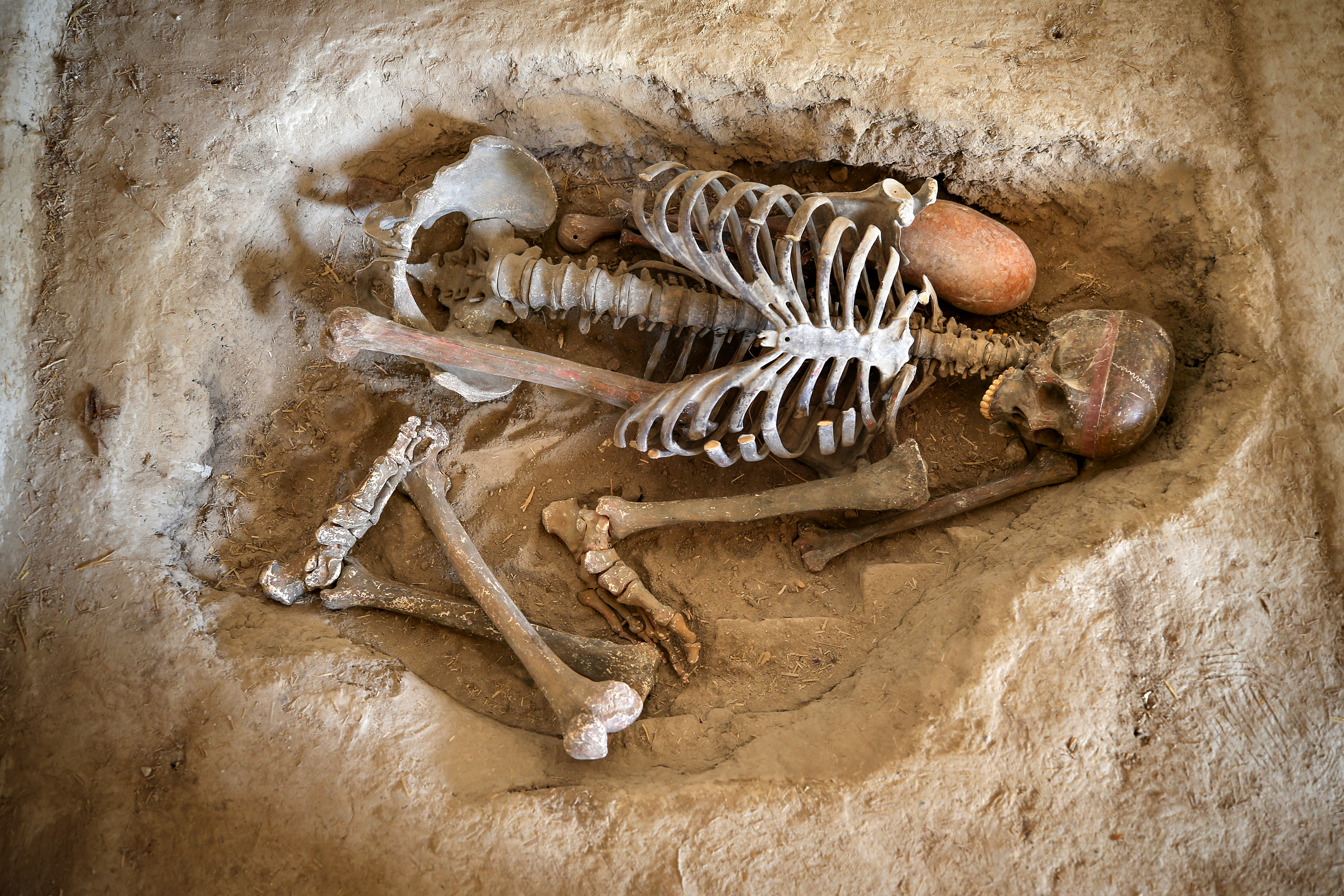8,600-year-old bread dough found in Türkiye during archeological excavations

Archaeologists in Türkiye, at Catalhoyuk, one of the world’s earliest urban settlements, have unearthed an 8,600-year-old bread dough
In the Neolithic settlement of Catalhoyuk, located in Konya’s Cumra district, archaeologists have unearthed an 8,600-year-old oven and bread dough remains. Catalhoyuk was a bustling community of about 8,000 people during the Neolithic period. The oven, located in an area called “Mekan 66,” was accessed from above and was situated near mudbrick houses.
Around the oven, which was largely destroyed, wheat, barley, pea seeds and a palm-sized piece of bread were found.

Analyses conducted at Necmettin Erbakan University Science and Technology Research and Application Center (BITAM) determined that the spongy residue was fermented bread from 6600 B.C.

Pointing out that modern archaeology today is also studying the archaeology of food, associate professor Ali Umut Turkcan, head of the archaeological excavation committee, said: “It is a reduced version of loaf bread. It has a finger pressed in the center, it was not baked, but it was fermented and came to the present day with the starches inside. There is no such example. Catalhoyuk was already the center of many firsts.”
According to Turkcan, the earliest known evidence of leavened bread comes from Egypt, while the find at Catalhoyuk predates all others, making it the world’s oldest bread dough.
Source: Newsroom



